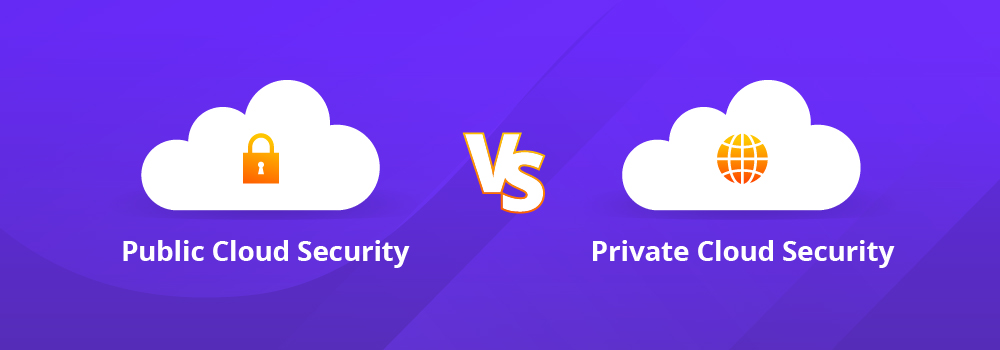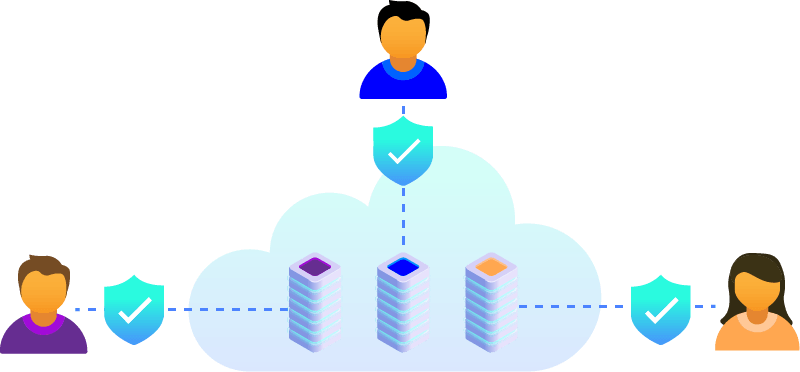Try CDNetworks
For Free
Most of our products have a 14 day free trial. No credit card needed.

Cloud computing has transformed IT forever. Globetrotting salesmen can now tap into company databases to access documents on a smartphone. And the possibilities continue to grow. While public cloud in cloud computing offers clear advantages, it’s important to remember that public cloud computing security remains a crucial consideration.
Businesses now use many cloud resources and must choose between a public cloud service and a private cloud model. Is the best option a hybrid mixture of public and private cloud use? In this guide, we consider types of cloud environments to evaluate the pros and cons of both.
In public cloud setups, providers manage basic security. Users depend on them to protect data and applications. In this model, users rely on the provider to secure their data and applications.
In a public cloud offers model, the provider manages basic security. Users rely on them to protect their data and applications. In the shared responsibility model, providers are responsible for securing the infrastructure, including physical servers, virtual machines, and networks. Customers, on the other hand, manage data and applications, identity and access management (IAM), and configurations.
Security in the private cloud protects data and applications in a dedicated environment, isolated from other organizations. Highly secure compliance private clouds offer stronger isolation and a dedicated setup to meet strict compliance requirements. However, they often require more resources and expertise to manage. Private clouds, hosted on-premises or in third-party data centers, are always dedicated to a single organization.
This model gives organizations full control over operating systems, network segmentation, encryption standards, and compliance configurations. Industries such as finance, healthcare, and government often choose private cloud environments because they demand strong security and compliance. These requirements include data sovereignty, audit trails, and regulations like HIPAA, PCI-DSS, and GDPR.
However, organizations must consider the cost that private clouds can entail when scaling. While less cost effective compared with public options, private clouds allow for customized firewalls, zero-trust network architectures , and deep visibility into network traffic and system logs.
Private cloud environments provide stronger security through isolation and dedicated infrastructure, but demand more resources and skilled personnel for maintenance. Public cloud environments offer various security tools and services, but their shared infrastructure increases the risk of data breaches.
Cloud environments need security tools like data encryption, access controls, and regular audits to protect data and applications. Choosing between public vs private cloud security depends on a company’s unique requirements and risk tolerance. The differences between public and private cloud security lie in two key dimensions: network security and access control. Let’s take a look.
There’s been quite a bit written about private vs public cloud security, and there’s a good reason for it. Security in the cloud – whether in a public or private cloud scenario – is a business necessity. Cloud adoption is continuing at a rapid pace and for good reason.
In some industries, public cloud services may lack strong privacy and security policies for certain types of data. These gaps make public cloud environments more open to attacks, especially from advanced malware used by hackers. Data loss is a big worry because users have little control over any security gaps that might show up.
A private cloud gives companies the most control over cloud security. They can manage it in-house or work with a managed security provider. Private cloud security tools offer stronger identity checks, API-enabled protection, extra automation, and room to scale when needed. They can also continuously monitor system activity, which contributes to a greater level of data protection.
Who can access company data and communications has always been a major concern. In a public cloud, IT staff can’t see the physical servers that hold company data, which often sits on shared resources.
Cloud service providers manage firewalls and internet security tools. But if there’s a mistake in the process or a missed configuration, your data could still be at risk. Most cloud-security providers use Role-Based Access Control (RBAC). This method limits system access by assigning permissions to users based on their roles.
In contrast, a private cloud gives companies greater authority over access control. Companies can further restrict access with a private cloud solution. The IT team manages data security and monitoring, even if the company’s servers are in a data center. Your team can physically lock each server cage and layer on additional controls as your security policy demands.
Ultimately, organizations must assess the pros and cons of cloud vs private cloud based on security, cost, and operational control.

As you place more mission-critical applications, services, and sensitive data in the cloud, you must actively ensure that your cloud solution stays online 24/7. Both public and private cloud environments offer always-on access, but how do they support disaster recovery or cyberattack response? Does the cloud solution have a plan in place? Does your cloud solution have built-in redundancy or the ability to absorb large amounts of traffic in a DDoS attack?
Hybrid cloud security – one that involves public and private cloud security – could help diversify data storage, protecting assets in the event of a disaster or attack. In the event of a disruption—whether due to a system failure, natural disaster, or malicious attack—hybrid cloud architecture enables rapid recovery and failover support.
However, managing security across a hybrid environment comes with its challenges. These include enforcing consistent policies and detecting threats across fragmented platforms. Enterprises may need to integrate different service models, including software as a service (SaaS), platform as a service (PaaS), and infrastructure as a service (IaaS), each with distinct security considerations.
Pairing your company’s cloud with a CDN provides access to a global network of cloud-based technologies, effectively addressing security complexities in a hybrid cloud environment. If a natural disaster occurs in one region, other servers are ready to take over the traffic, ensuring the consistent operation of your website or web-based applications. A CDN can absorb excessive traffic—often an early sign of a DDoS attack—and our cloud security monitors all the time, alerting customers when issues arise.
The cloud – public, private, and hybrid cloud environments – are here to stay. Making it work for your business is an ongoing challenge.
Choose your cloud business partners with care; your business will depend on the availability of your cloud, whether it’s key data or an application. The right solution for your business operations may not come from a single cloud provider. Leveraging a multi-cloud environment can lead to cost savings, especially when you only pay for the resources you actually use.
There are options for businesses looking for an increased security posture while taking advantage of flexible public cloud infrastructure, such as a cloud-based content delivery network (CDN). At CDNetworks, our cloud security solutions provide DDoS protection, security for web applications and websites, and allow for the secure transfer of information over the internet. Our cloud-based global infrastructure also accelerates real-time content delivery to your customers around the world, reducing security risks.
On December 3, 2025 (EST), a critical security vulnerability was discovered in React Server Components, rated with a CVSS score of 10.0.
We continuously innovate to meet the evolving challenges of WAAP in today’s digital ecosystem. In this post, we’ll explore the key capabilities of the CDNetworks WAAP solution.